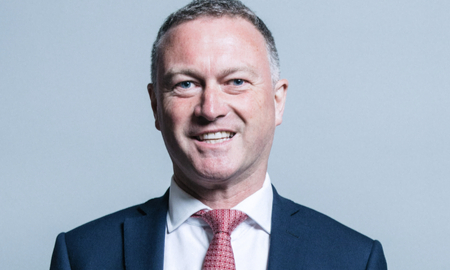Sign up for our free daily newsletter
YOUR PRIVACY - PLEASE READ CAREFULLY DATA PROTECTION STATEMENT
Below we explain how we will communicate with you. We set out how we use your data in our Privacy Policy.
Global City Media, and its associated brands will use the lawful basis of legitimate interests to use
the
contact details you have supplied to contact you regarding our publications, events, training,
reader
research, and other relevant information. We will always give you the option to opt out of our
marketing.
By clicking submit, you confirm that you understand and accept the Terms & Conditions and Privacy Policy
The UK’s shadow justice secretary Steve Reed MP has called on the legal profession to increase judicial diversity to better mirror society.
“Our judges [should] reflect the diverse, modern society in which we all live,” he said, speaking at a Middle Temple Hall event to outline his ambitions for reform under a potential future Labour government.
Currently only 5% of senior court appointments for the High Court and above hail from ethnic minorities. Reed noted that the judiciary had made “real effort” to increase diversity, particularly in the junior ranks, but “must go further”.
The Supreme Court “currently has only one woman serving on it and has never had a judge from an ethnic minority,” he said.
In an indirect challenge to the self-employed Bar – whose members dominate the senior judiciary, where only 5% of current judges were non-barristers – Reed said he would extend non-traditional routes to judicial office. This would include employed barristers, legal executives and others, saying Labour would identify barriers to retention and progression in professional life for women, black and other ethnic minority groups, so as to create a deeper pool of candidates.
Reed also praised the work of the profession and judges to promote the significant financial contribution the commercial legal sector makes to the UK economy.
He added: “Labour celebrates the fact that our legal firms and King's Counsel are world leaders in the provision of advice, in steering transactions and in dispute resolution.”
Noting the significant benefits to inward investment, Reed said global firms need access to the best global talent and that UK prosperity depends on it.
However, Reed hinted that City law firms should consider an extension of existing pro bono commitments, saying global law firms must recognise their shared obligations to each other.
Such businesses, he said, should do more to help those who had been left furthest behind – part of Labour’s underlying commitment to ensure that everyone has equal access to justice irrespective of means. He promised to look creatively at how that can be achieved.
The Women and Diversity in Law Awards, which are hosted by The Global Legal Post, will take place in London on 21 March. Click here for more details.
Reed also criticised the UK government’s approach to international law, saying “Britain's reputation abroad is built on our commitment to international law” and noting the government had threatened to break legal obligations in its treaty exiting the European Union.
Reed said: “There is no excuse for any breach of international law, not even in ‘a very specific and limited way’.”
In a nod to concerns from many City law firms over the progress of a Bill to sunset remaining EU law, he said the UK government should not rip up regulations in a “blind ideological frenzy” for short-term party-political reasons that then leaves gaping holes in the legal framework.
Reed also added that a Labour administration would put an end to the use of SLAPPs (strategic lawsuits against public participation) to silence critics, saying they enabled the super-rich to weaponise their wealth to silence critics.
Noting that a thriving commercial legal sector cannot exist alongside a struggling criminal justice system, Reed also outlined proposed reforms to the criminal justice system, including relaxing rules to allow more employed advocates to serve as Crown Prosecutors, and a system of Australian-style community courts. Reed also said Labour would oppose “tooth and nail” any attempt to repeal the Human Rights Act.
Email your news and story ideas to: [email protected]











